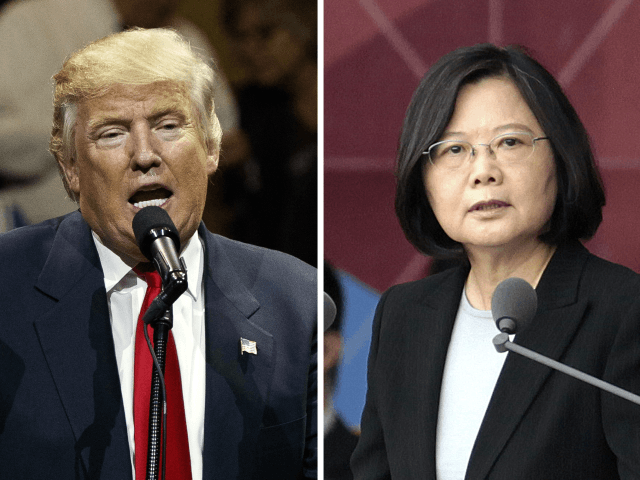A Chinese government official said on Friday that the United States should not have “official contact in any form” or maintain military relations with Taiwan.
This demand was issued two days after the U.S. Senate passed a bill calling for increased high-level military and civilian government contacts with Taiwan.
Ma Xiaoguang, a spokesman for the Taiwan Affairs office of mainland China’s State Council, denounced the National Defense Authorization Act that passed the U.S. Senate on Wednesday. Ma insisted Taiwan issues are a sovereign concern of China, described Taiwan as the most fragile issue between the U.S. and China, and warned the United States not to increase tensions in the Straits of Taiwan.
Taiwan News reported Thursday on the Senate passage of the National Defense Authorization Act in much more glowing terms than China’s state-run media:
The bill contains a passage on Taiwan in Section 1243 titled “Sense of Senate on Taiwan.” In the section, it reaffirms the Taiwan Relations Act and Six Assurances, calls for strengthened defense and security cooperation with Taiwan, supports supplying Taiwan with defensive weapons, recommends improved predictability of arms sales to Taiwan, and states that the Secretary of Defense should promote policies that enhance Taiwan’s security.
Under the latter item, it calls on “United States participation in appropriate Taiwan exercises, such as the annual Han Kuang exercise.” It also calls on “Taiwan participation in appropriate United States exercises,” as well as exchanges between senior defense officials and military officers of the two countries.
The section then goes to call on expanded cooperation in humanitarian assistance and disaster relief, before closing with a proposal that a U.S. hospital ship make annual visits to Taiwan in order to improve disaster response planning and preparation. The section closes with a recommendation that the U.S. should consider sending military vessels to Taiwan as part of the annual “Pacific Partnership” humanitarian missions of the U.S. Navy.
None of this sits well with Beijing, not even the notion of American hospital ships helping Taiwan with disaster preparedness. China’s campaign to isolate Taiwan included blocking it from membership in the World Health Organization in May.
Taiwanese Premier William Lai welcomed the prospect of U.S. involvement in joint military drills, praising it as pushback against Chinese attempts to isolate and denigrate Taiwan.
In an interview on Thursday, Lai said other countries in the region are worried about Chinese aggression in the East and South China Seas, so they would be reassured by a demonstration of American naval power and its commitment to protect its allies.
China spends a good deal of time fulminating against Taiwanese “separatists” and assuring the Taiwanese that American cannot save them from China’s growing military might if the island makes a bid for full independence. The most alarming interpretation of this strategy is that China is contemplating a full-scale invasion and looking for a pretext to launch the operation. China’s Taiwan strategy could also be seen as a long campaign to break Taiwan’s morale and make reunification look like the only way to gain relief from constant Chinese pressure.
Either scenario would explain why China reacts so badly to anything that reinforces Taiwan’s confidence or bolsters its international prestige, even something as minor as Vietnam allowing Taiwanese firms on its soil to fly their national flag. (Taiwanese companies are especially eager to hoist their flags when periodic anti-China protests roll through the streets of Vietnam.)
Many analysts believe China’s military still is not powerful enough to mount an invasion of Taiwan without staggering losses, despite Beijing’s bluster to the contrary. Others wonder if Beijing’s campaign to isolate Taiwan and pressure it to reunify is backfiring and pushing every Taiwanese party and demographic further away from mainland China.
Other Asian nations may feel differently. China touted this week’s joint ocean rescue drill with ASEAN nations as a sign they are beginning to accept China’s claims on disputed islands and warned against any “disturbances from outside” (i.e. America) as ASEAN and China hammer out a “code of conduct” for the South China Sea. Stronger American ties with Taiwan and joint exercises with the Taiwanese navy would send Beijing a message of defiance it desperately needs to hear.

COMMENTS
Please let us know if you're having issues with commenting.